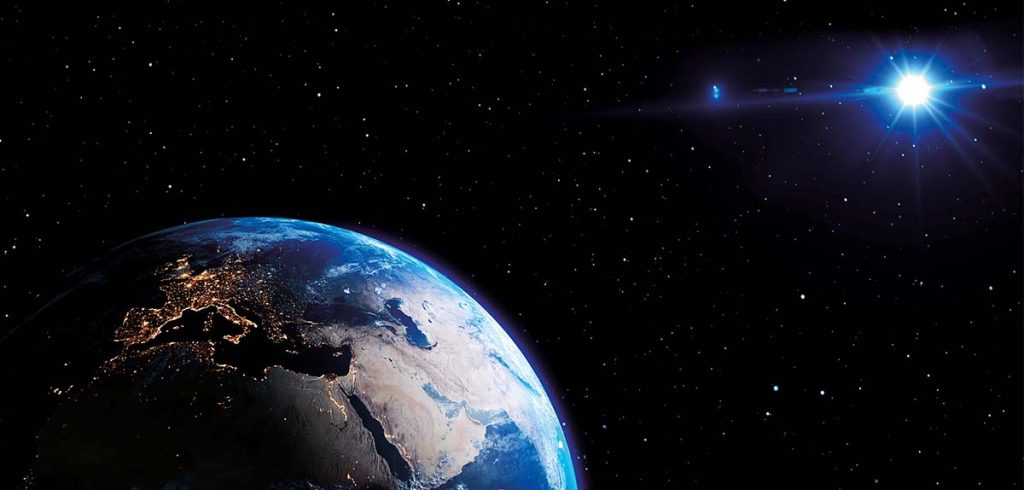On the 9th and 10th of November,
Seville was home to the 2nd Edition
of the Space Congress, an event
organized by the Spanish Association
of Defense, Security, Aeronautics and
Space Technology Companies (TEDAE)
and the Spanish Space Agency (AEE),
which was attended by over 200
representatives from both national
and international companies and
institutions of the sector.
This new edition, which was finally
held after overcoming the restrictions
related to Covid-19, served as the grand
finale of Space Week and gathered
together the top representatives of the
European space sector.
The main goal of this Congress was to
showcase the capabilities of the sector
in Spain and its achievements. More
specifically, as per the KPMG report on
the ‘Economic and Social Impact of the
Defense, Security, Aeronautics and Space
Industry’ prepared for TEDAE, this sector
has, for the first time, exceeded a turnover
of 1 billion euros, which proves that it is
a strategic industry with a great outlook.
The European Union, especially with Copernicus, has positioned itself as a world pioneer in terms of sustainability, clearing up the path for the Green Deal towards a net zero economy that is respectful of the planet”
In addition, it was an opportunity
to reveal the key European strategic
plans of action for this decade
in relation to space, as well as to
analyze the conclusions drawn
during Space Week at a key moment
for the sector.
Amparo Valcarce, Secretary of State for
Defense, was in charge of the inauguration
of the Congress. As part of her speech,
she highlighted the importance of the
space sector for strategic autonomy
and its ‘driver’ nature, which is essential
for economic development, and stated
that the participation of the Ministry of
Defense in this Congress is a testament
to the efforts in performing “an efficient
institutional undertaking in support of the
promotion and knowledge of the industrial
and technological foundations of
defense, both in national and international
landscapes”. “Spain is a serious, reliable
European ally with a strong leadership in
space research, knowledge, technology
and industry,” Valcarce added.
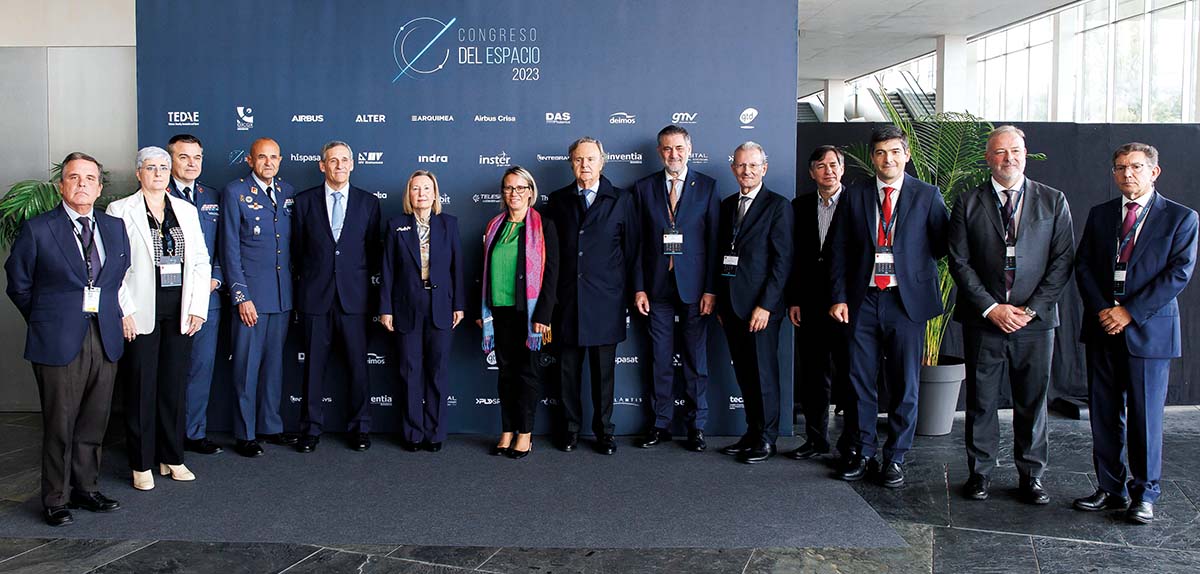
Next, Paraskevi Papantoniou, Head of
the Space Policy Unit (DEFIS C.1) European
Commission, during his speech ‘A
resilient and sustainable EU space’, stated
that “by means of the Observatory of
Critical Technologies we can monitor the
vulnerabilities of space and defense value
chains of the European Union, producing
dual-use technologies”. He also explained
that “the European Union especially with
Copernicus has positioned itself as a
world pioneer in terms of sustainability,
clearing up the path for the Green Deal
towards a net zero economy that is respectful
of the planet”.
A roundtable was also held, called ‘Space
for Sustainability. Earth Observation,’
which saw the participation of Fernando
Gómez-Carpintero, CEO of Airbus Crisa;
Inmaculada Serrano, Space CTO at Indra;
Elisa Rivera, president of the Permanent Commission of
the Spanish Space Agency; Paraskevi Papantoniou, Head
of the Space Policy Unit (DEFIS C.1) - European Commission;
Louis Tillier, Deputy Director of the European Union
Satellite Centre (SatCen), and Luis Guerra, Head of Space
Systems Spain at Airbus.
After this roundtable came to its conclusion, Heriberto
Saldivar, ESA Head of Strategy Department, explained
during his speech that countless satellites facilitate our
everyday lives on Earth, where in regard to telecommunications,
navigation or Earth observation. “They are our
eyes in the sky and play an essential role in understanding
our weather and our climate,” he remarked.
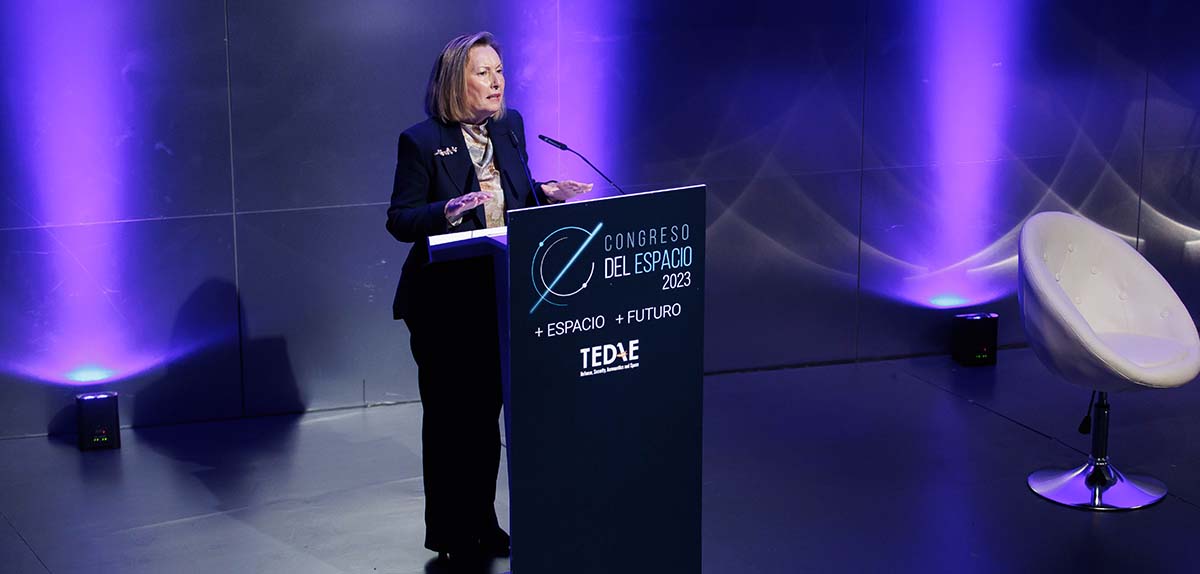
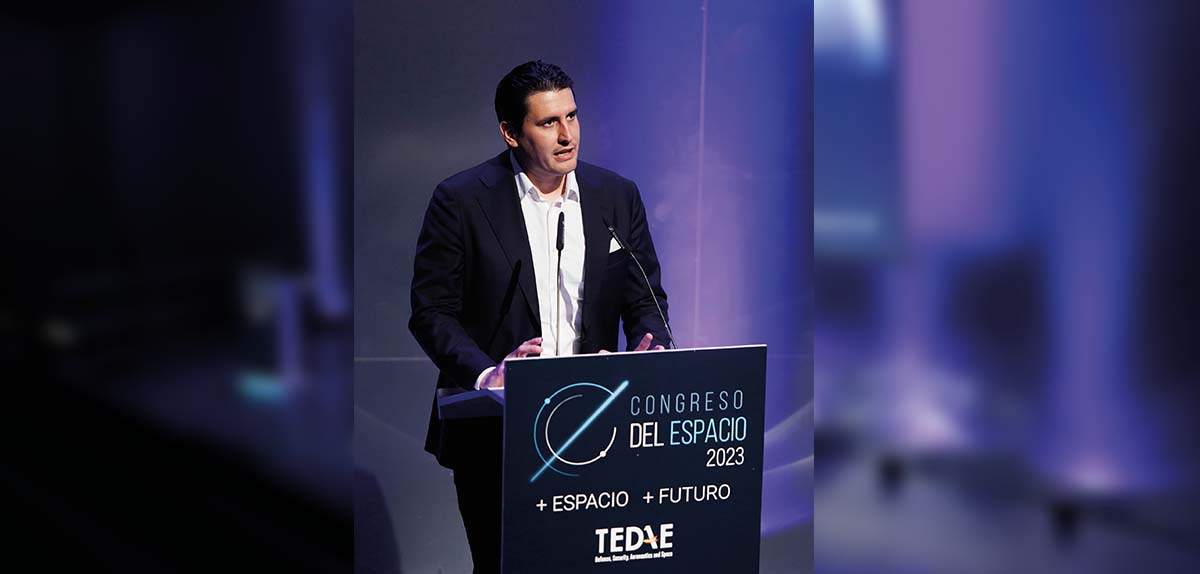
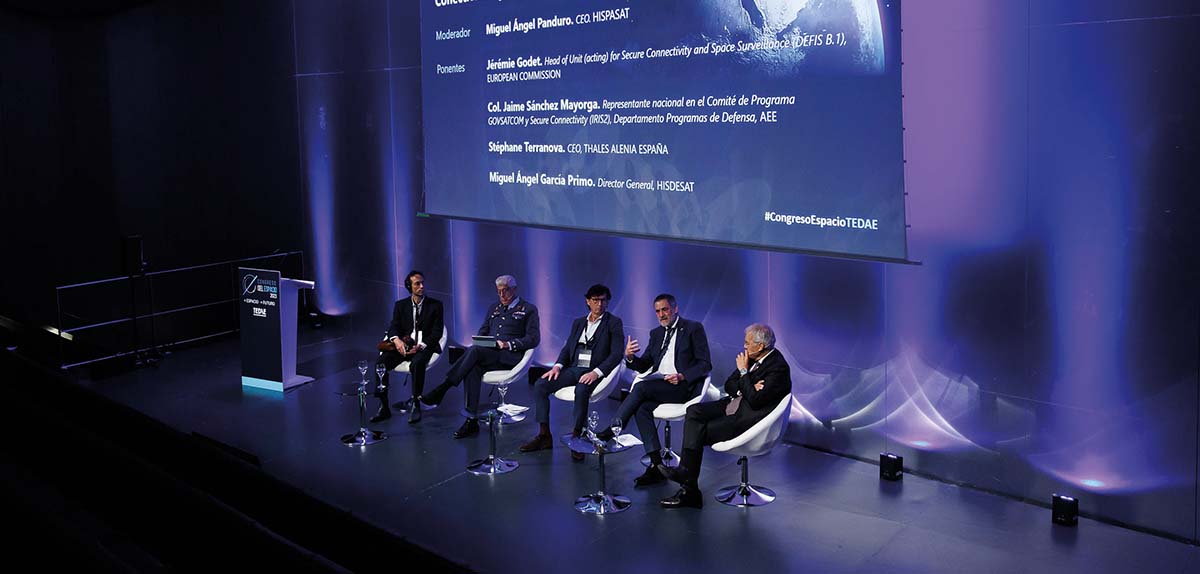
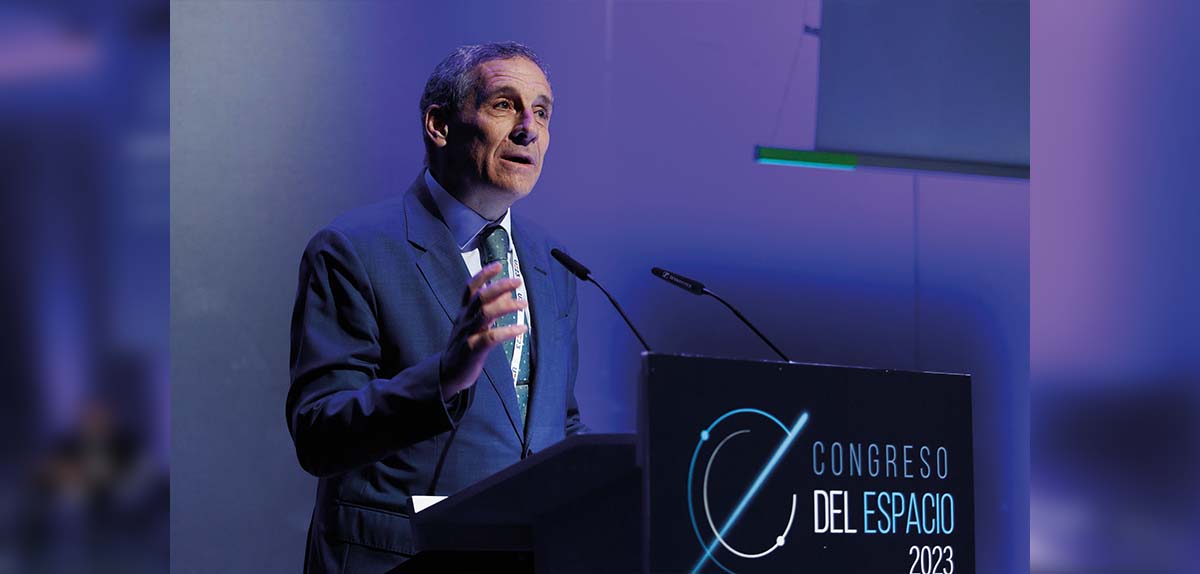
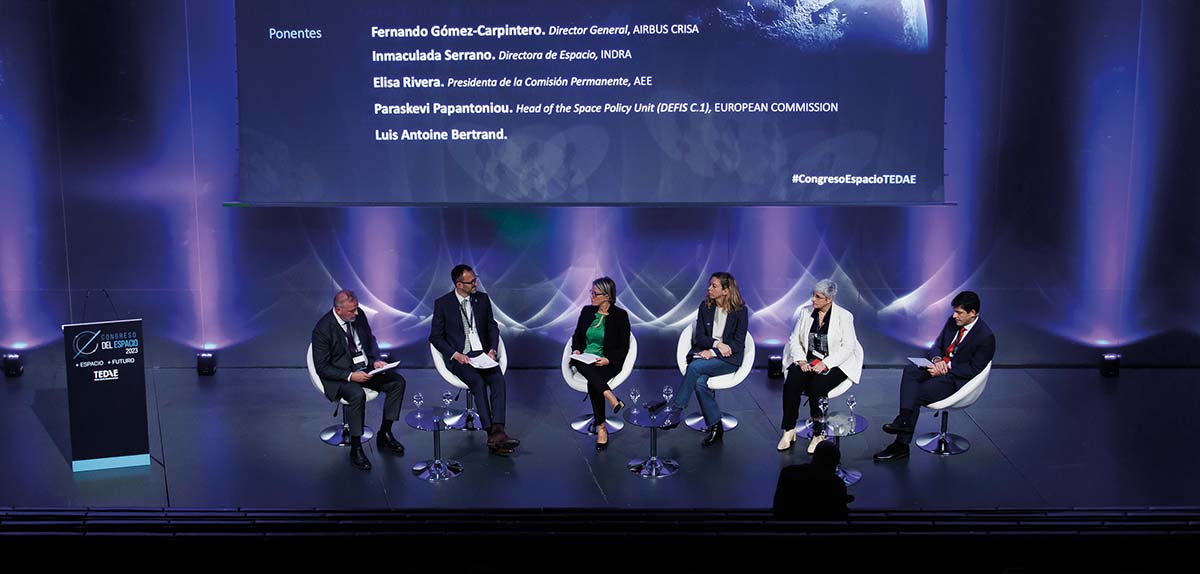
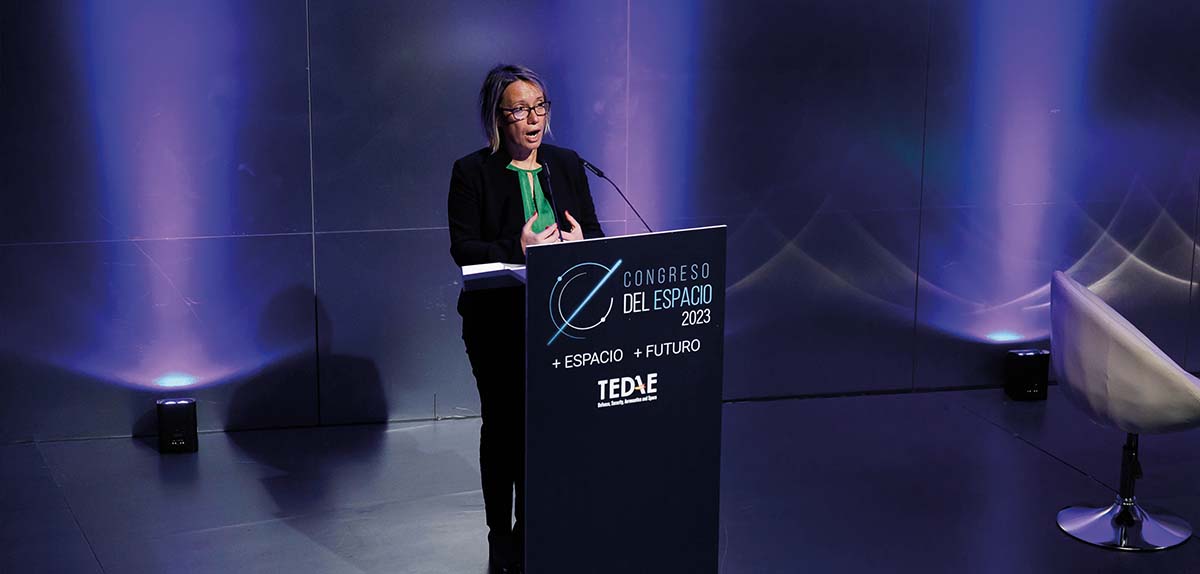
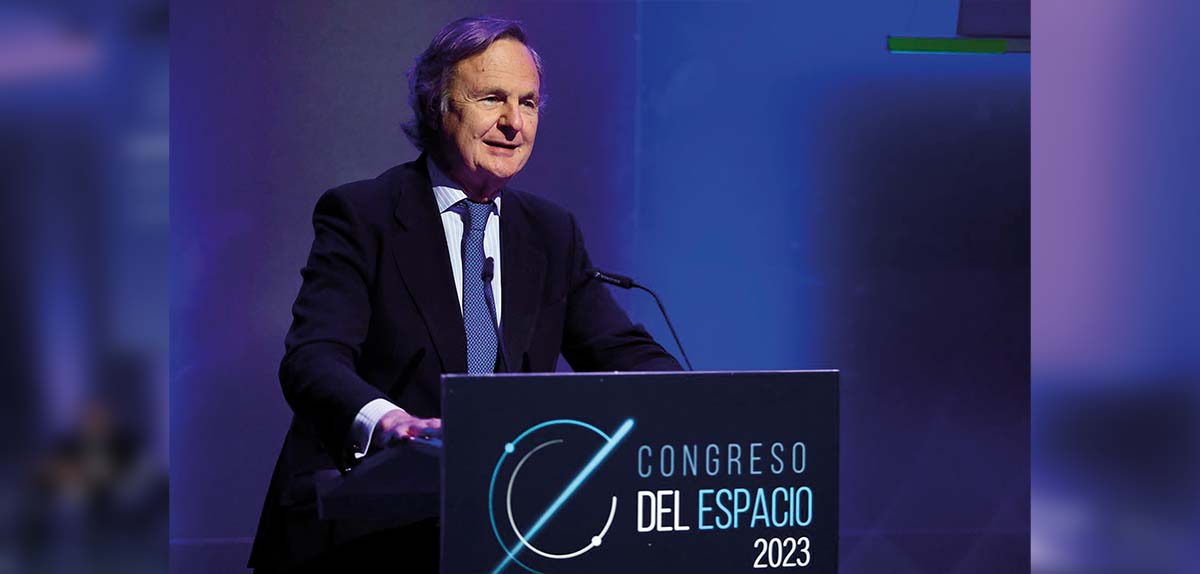
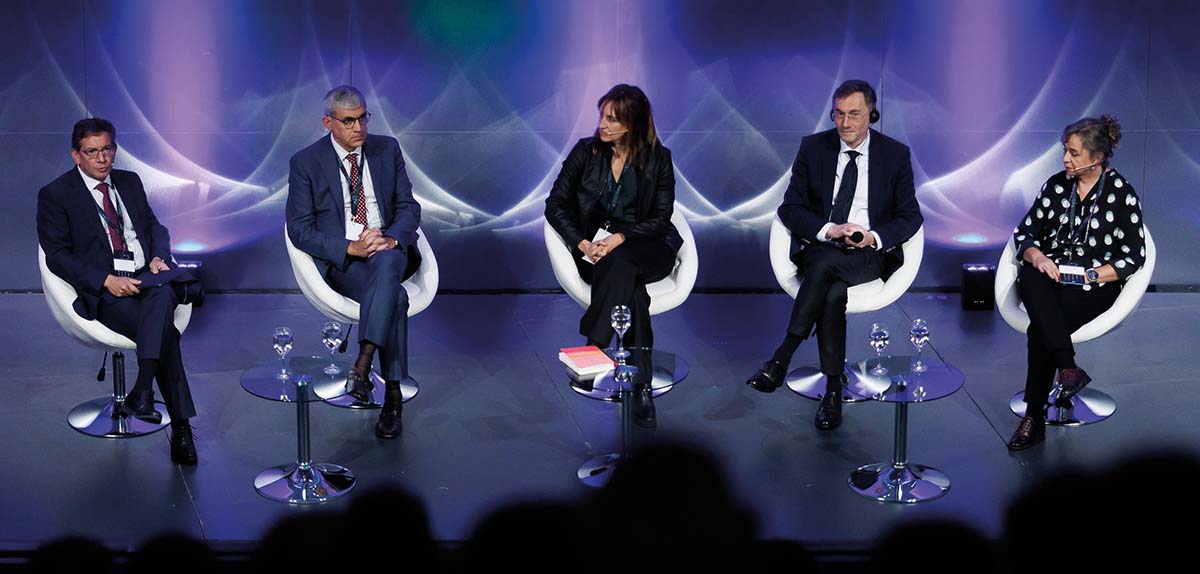
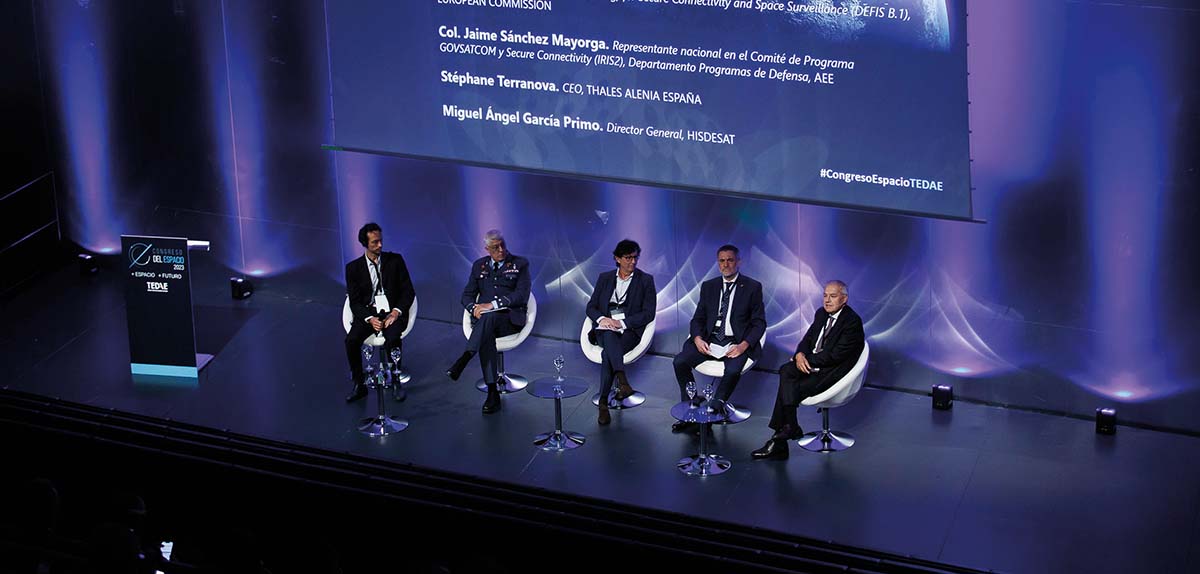
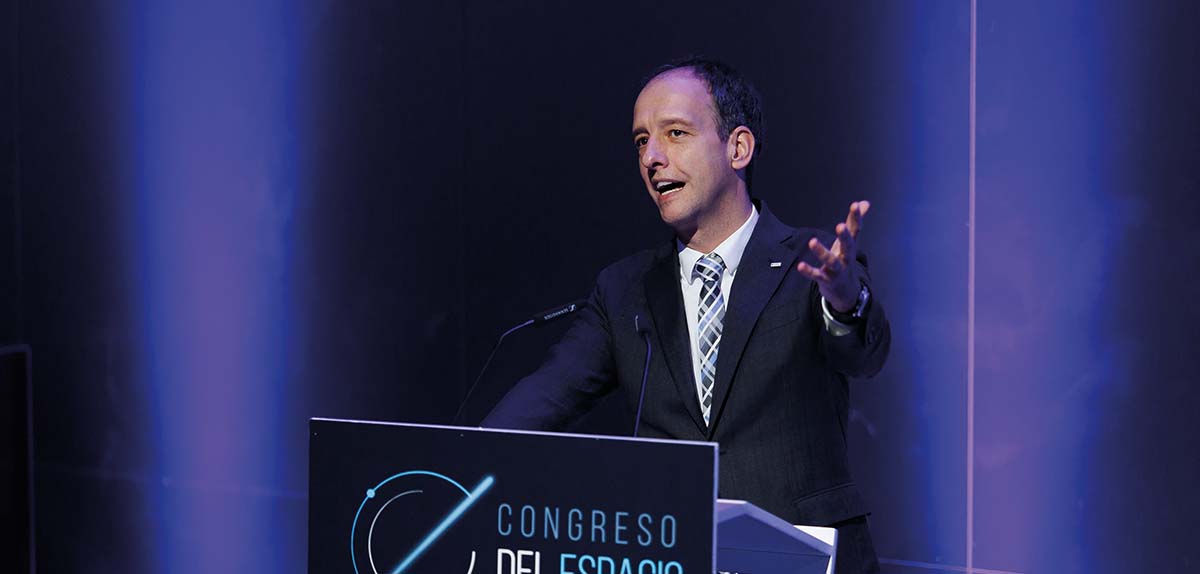
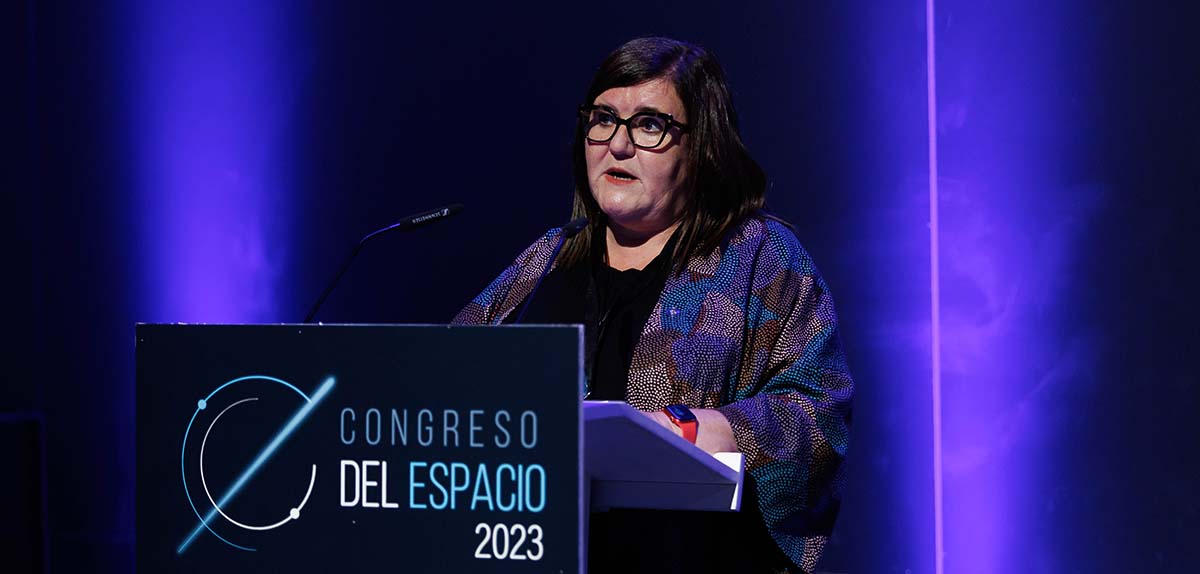
The last roundtable for the day focused on ‘The immediate
future. Navigation, launch vehicles, science and exploration’,
which saw the participation of Miguel Romay,
Satellite Navigation Systems General Manager at GMV;
Luisa Lara of the Institute of Astrophysics of Andalusia
and member of the Space Science Advisory Committee
of ESA; Kai-Uwe Schrogl, ESA’s Special Advisor for Political
Affairs; Eva Villaver, director of the Space and Society
Office of the AEE, and Diego Rodríguez, Director of Space
and Science at Sener Aeroespacial.
The first day of Space Congress concluded with a reception
at the headquarters of the Spanish Space Agency.
The second day began with a presentation by Miguel Belló, director of the Spanish Space Agency
Belló, director of the Spanish Space Agency, in which he commented on the
the main conclusions of the Seville Space Week.
of Seville. Belló said that the countries of the European Union and the countries of the European Space Agency have
European Union and the countries of the European Space Agency have made it very
made it very clear that Earth observation and the use of space systems for climate change.
of space systems for climate change is the number one priority, "the most
number one priority, "the most important challenge we have".
In addition, he reported that during the summit the entry of the United Kingdom and Greece had been announced.
the entry of the United Kingdom and Greece into the Atlantic Constellation project had been announced at the summit.
Atlantic Constellation project.
The ‘Connectivity and Security in
Space’ roundtable saw the participation
of Jérémie Godet, Head of Unit
(acting) for Secure Connectivity and
Space Surveillance (DEFIS B.1)
European Commission; Jaime Sánchez
Mayorga, national representative in the
GOVSATCOM and Secure Connectivity
(IRIS2) Programs Committee of the
Defense Programs Department of the
AEE; Stéphane Terranova, CEO of Thales
Alenia España; Miguel Ángel García
Primo, CEO of Hisdesat, and Miguel
Ángel Panduro, CEO of Hispasat.
The last speech of the day was
delivered by Rodrigo da Costa, Executive
Director at EUSPA, who also highlighted
the importance of Copernicus as the
eyes of Europe on Earth, since it collects
vast amounts of information oodles of
data to comprehend not only what is
currently taking place, but also to create
models to predict the future across
highly diverse applications.
An excellent culmination where the most important elements in which the Spanish industry has relevance have been analyzed, such as science, Earth observation, navigation, connectivity and security, and the Spanish Space Agency”
As the Congress neared its conclusion,
the last roundtable was held on the
subject of the Spanish Space Agency,
with the participation of Alonso Cabrera,
Coordinator of the Latin American and
Caribbean Space Agency (ALCE); Raul
Kulichevsky, Executive and Technical
Director of CONAE; Jorge Potti, Vice
President for Space of TEDAE; Carlos
Hernando, Aerospace Business
Development at INECO; José María
Martell, Vice-president for Scientific and
Technical Research of CSIC, and Miguel
Belló, Director of the AEE.
Ricardo Martí Fluxá, President of
TEDAE, and Teresa Riesgo, Secretary
General for Innovation, were in charge
of the closing speech for this second
edition of the Congress. During his talk,
the President of TEDAE stressed that
“Spain has proven to be a very important
stakeholder in the research and
exploitation of Space. I believe that we
are on track and in very good hands. We
need to keep advancing in this adventure
to which we are all committed”.
Lastly, the Secretary General for
Innovation stated that this Congress has
been “an excellent culmination where
the most important elements in which
the Spanish industry has relevance have
been analyzed, such as science, Earth
observation, navigation, connectivity and
security, and the Spanish Space Agency”.

